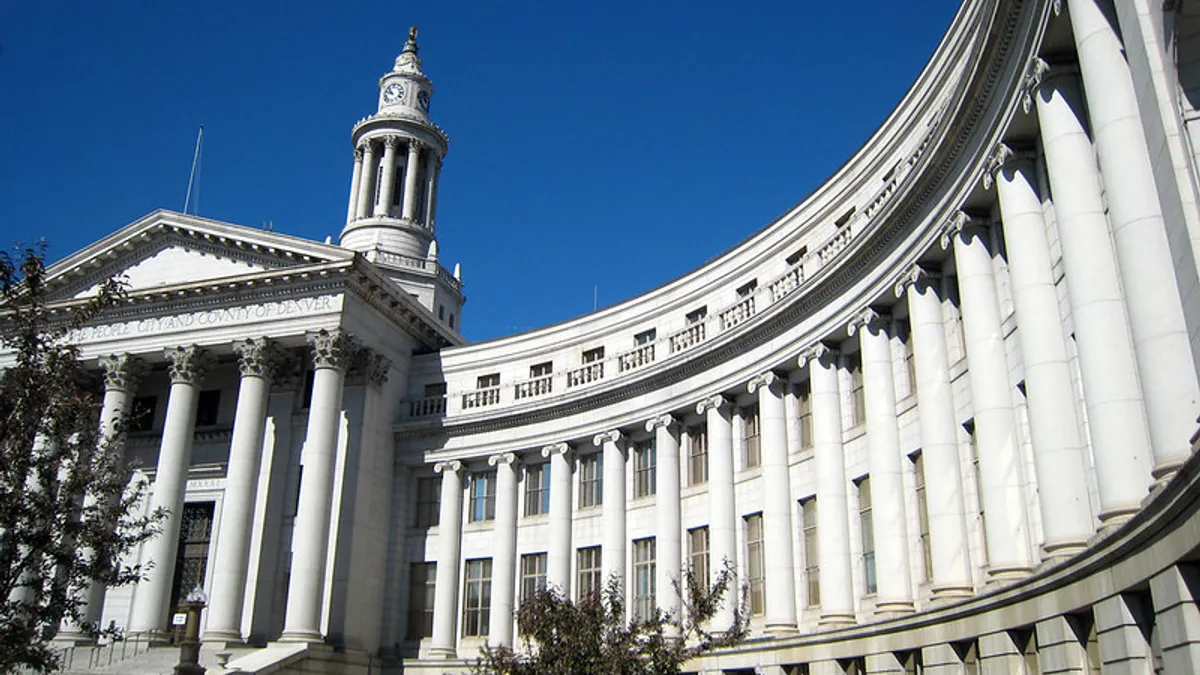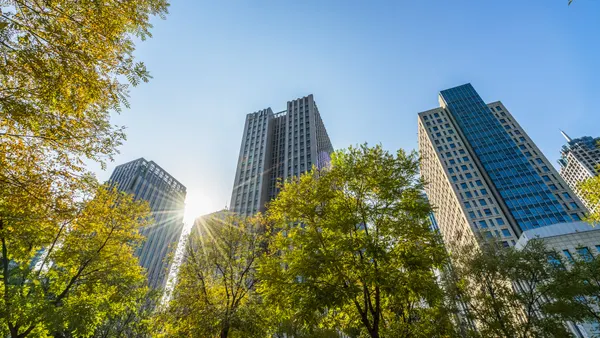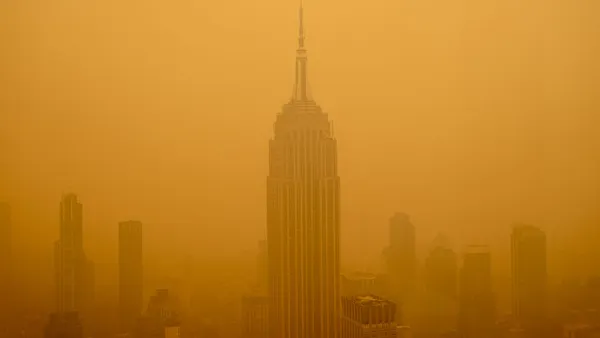Dive Brief:
- The Denver City Council voted Monday to defer a 0.25% sales tax increase for greenhouse gas (GHG) reduction initiatives to voters through the November municipal ballot.
- The tax, equivalent to 2.5 cents on a $10 purchase, would fund policies recommended by the Denver Climate Action Task Force, a 26-member committee assembled by the city. Among the initiatives the tax would fund are investments in solar power, job training in renewable energy and adaptation programs for vulnerable neighborhoods.
- The proposed tax would replace a previous ballot initiative that would have taxed residential and business energy use. Supporters say the sales tax will have less of an impact on low-income households and potentially bring in more money.
Dive Insight:
A report released in July by the Climate Action Task Force recommended that Denver invest some $3.4 billion over the next decade on policies and incentives to reduce GHG emissions 40% from 2005 levels by 2025, 60% by 2030 and 100% by 2040. That includes retrofits of homes and buildings for energy efficiency; expanding electric vehicle infrastructure; ending natural gas in homes and businesses; redesigning streets and increasing transit options.
The sales tax could bring in an estimated $36 million for those efforts, with 50% dedicated to underrepresented and low-income communities. That will help "right some of the historic wrongs" that have left those communities more at risk from rising heat, pollution and extreme weather, said city councilman Jolon Clark.
"This pandemic has really shined a bright light on the racial inequities that are baked into a lot of our systems, and that we are not prepared for the kind of crisis and disaster that is coming with climate change on a lot of different fronts," Clark said in an interview.
Clark pushed a separate climate change tax proposal in 2019, but agreed instead to work with Denver Mayor Michael Hancock to create the task force and the city’s new office of Climate Action, Sustainability and Resiliency. The environmental group Resilient Denver had proposed a fee on utility bills to fund climate change programs, but agreed to drop it in favor of the sales tax, which has more political support. However, some have criticized the sales tax as potentially regressive because it would have a bigger impact on low-income voters.
Backers have put in provisions to reduce the impact, such as exempting food, water, fuel, medical supplies and feminine hygiene products from the tax, said Thomas Riggle, political engagement chair of Resilient Denver.
Failing to make investments now could cost more than $20 billion in health and infrastructure impacts, according to the task force report. Riggle said the work will help all communities in the long run.
“Ultimately, if these investments bring down the cost of energy, it will really benefit those who would be hurt most by a sales tax,” Riggle said. “Financially, we have to look at the cost of inaction.”
CORRECTION: An earlier version of this story miscalculated the price equivalence of the sales tax.











